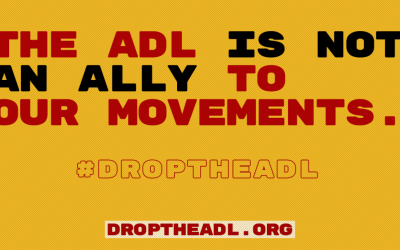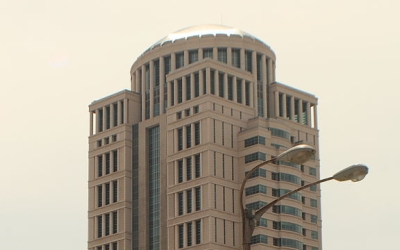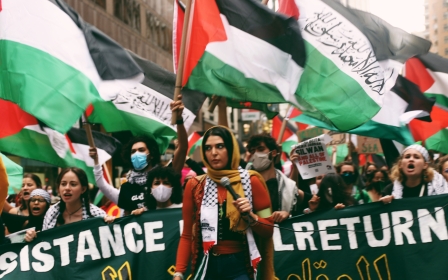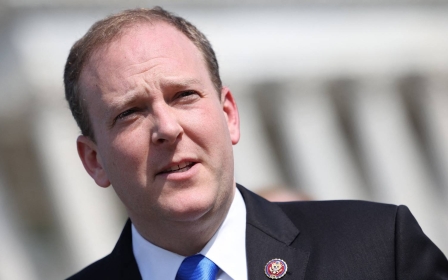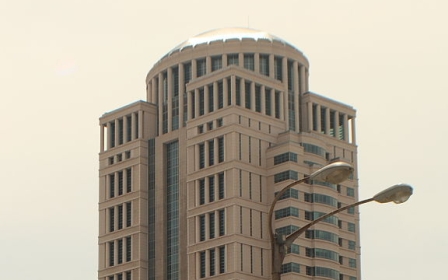BDS movement says it has 'no connection' with Boston-based Mapping Project
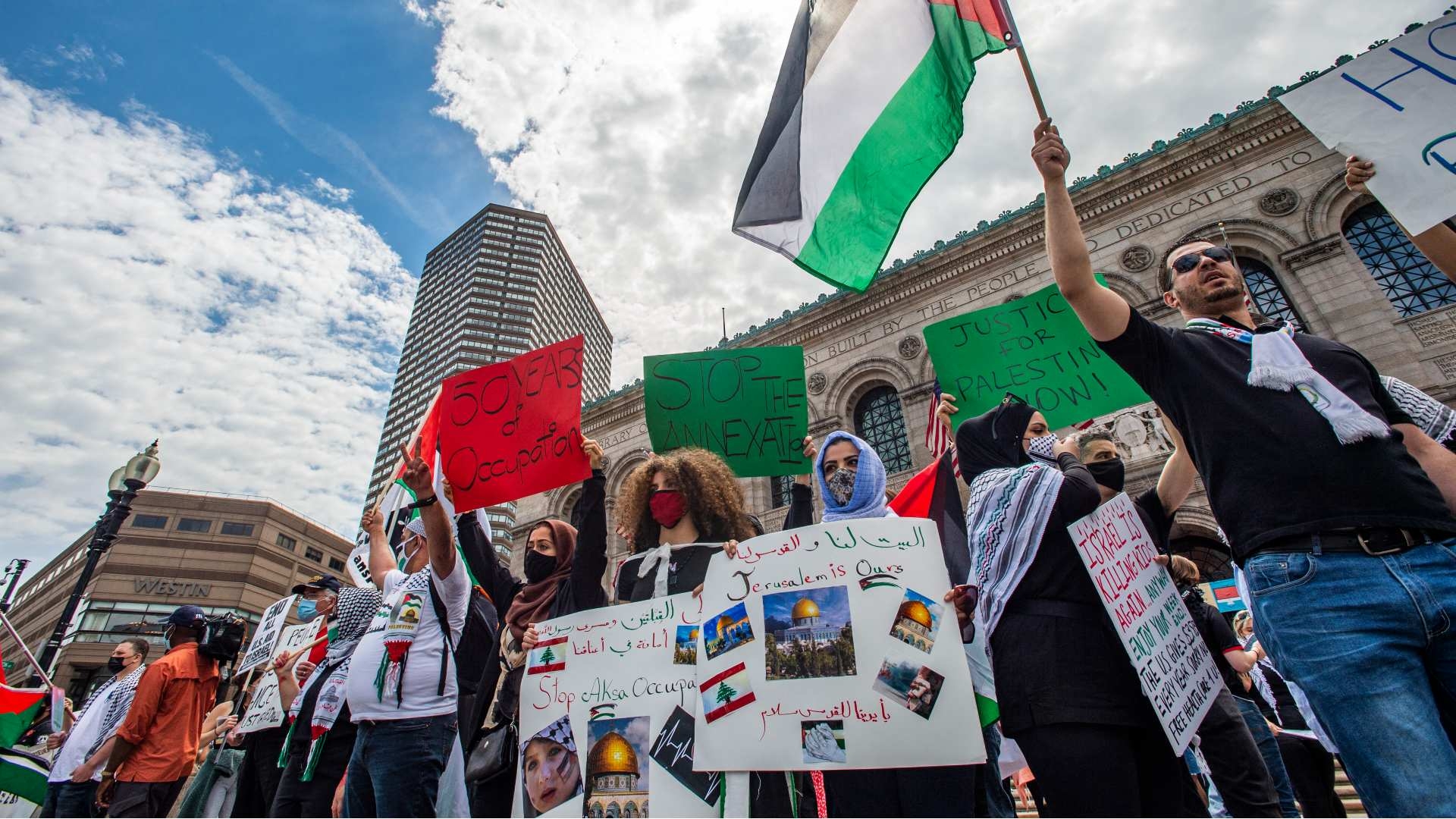
The Palestinian-led Boycott, Divestment and Sanctions (BDS) movement has distanced itself from a Boston-based mapping project that sought to highlight links between local entities in the US city and the "colonisation of Palestine", following a deluge of criticism against the initiative from lawmakers and pro-Israel groups.
"The Palestinian BDS National Committee (BNC), the broadest coalition leading the global BDS movement for Palestinian rights, has no connection to and does not endorse the Mapping Project in Boston, Massachusetts," the group said in a statement released on Wednesday.
'Our interactive map illustrates some ways in which institutional support for the colonization of Palestine is structurally tied to policing and systemic white supremacy'
- The Mapping Project
The statement has faced criticism from activists who support the project and appears to have created a schism between the BDS national committee and other pro-Palestine advocacy groups.
The Mapping Project was launched on 3 June with the goal of creating a link between entities, organisations and institutions in the Massachusetts area that support Israel's "colonisation of Palestine" and the occupation of the Palestinian territories.
It lists a total of 483 entities, the majority of which are police departments. It also lists US universities, politicians, businesses, and non-governmental organisations.
New MEE newsletter: Jerusalem Dispatch
Sign up to get the latest insights and analysis on Israel-Palestine, alongside Turkey Unpacked and other MEE newsletters
"Our interactive map illustrates some ways in which institutional support for the colonization of Palestine is structurally tied to policing and systemic white supremacy here where we live, and to US imperialist projects in other countries," the project says on its website.
"We felt that BDS efforts often missed the full picture of how the corporations, institutions, and other entities sustaining Zionism and other oppressions operate," the project's creators said in an interview with Mondoweiss.
It had received support from a number of activist groups, including the Boston chapter of the BDS movement, CodePink, the Palestinian Youth Movement, and the Samidoun Palestinian Prisoner Solidarity Network.
Mapping Project backlash
Soon after its release, a number of pro-Israel groups launched an attack on the project, claiming it was antisemitic and that it could also "incite violence" because of the inclusion of several Jewish community groups, schools, and an arts collective.
On 7 June, the Anti-Defamation League's (ADL) New England chapter released a statement accusing it of being a form of "intimidation rooted in antisemitism". A week later, ADL New England's director, Robert Trestan, published an opinion piece in the Boston Globe, titled, "BDS-promoted mapping project is antisemitic and must be condemned".
The Washington Post followed suit with an opinion piece accusing the project of "old school antisemitism".
Over the course of a few days, prominent US lawmakers also condemned the initiative. Massachusetts senators Elizabeth Warren and Ed Markey issued a statement on 10 June, saying it was "dangerous and irresponsible".
Other Massachusetts politicians, including Congressman Seth Moultan and Congresswoman Ayanna Pressley, followed suit with statements against the project.
The outrage over the Mapping Project culminated in a congressional letter sent to Attorney General Merrick Garland, Secretary of Homeland Security Alejandro Mayorkas and FBI director Christopher Wray, demanding a federal probe.
The letter was signed by 37 members of Congress - 29 Democrats and nine Republicans.
The Boston FBI field office said that while the agency had been monitoring the Mapping Project, it had not yet identified any threats of violence associated with it.
Disassociating BDS from the project
Following the backlash, an email sent from the BNC to the Boston BDS chapter, obtained by the Jewish Journal, urged the city's chapter to "remove all forms of promotion of the Mapping Project from all BDS Boston media channels" while also "disassociating BDS Boston from this project in an unambiguous way".
If not, the email said that the BNC would "be compelled to ask that you remove the BDS acronym from your name, as your activities will be outside the mandate of the BDS movement".
In its statement on Wednesday, the BNC made clear that it did not support the Mapping Project, but it also condemns attacks against the project "as a pretext for repressive attacks on the Palestine solidarity movement by anti-Palestinian racists and apologists for Israeli apartheid".
On Thursday, 15 pro-Palestine groups hit back against the criticism directed at the project, saying they "condemn attempts to censor this useful educational tool".
"No one in our movement has a monopoly on movement tactics, including BDS," the groups said.
"The mischaracterization of the project by the ADL and other Zionist organizations is meant to distract from what the project exposes: the connections between policing, imperialism, and Zionist colonialism," they added.
The Mapping Project did not respond to MEE's multiple requests for comment. The BDS National Committee also did not respond to MEE's request for comment by the time of publication.
Founded in 2005, the BDS movement aims to mimic the success of the boycott movement that peacefully ended apartheid in South Africa. That success was built upon the realisation that boycott, sanctions and divestment carried too high an economic price tag for South Africa to continue with its human rights violations.
Middle East Eye delivers independent and unrivalled coverage and analysis of the Middle East, North Africa and beyond. To learn more about republishing this content and the associated fees, please fill out this form. More about MEE can be found here.


